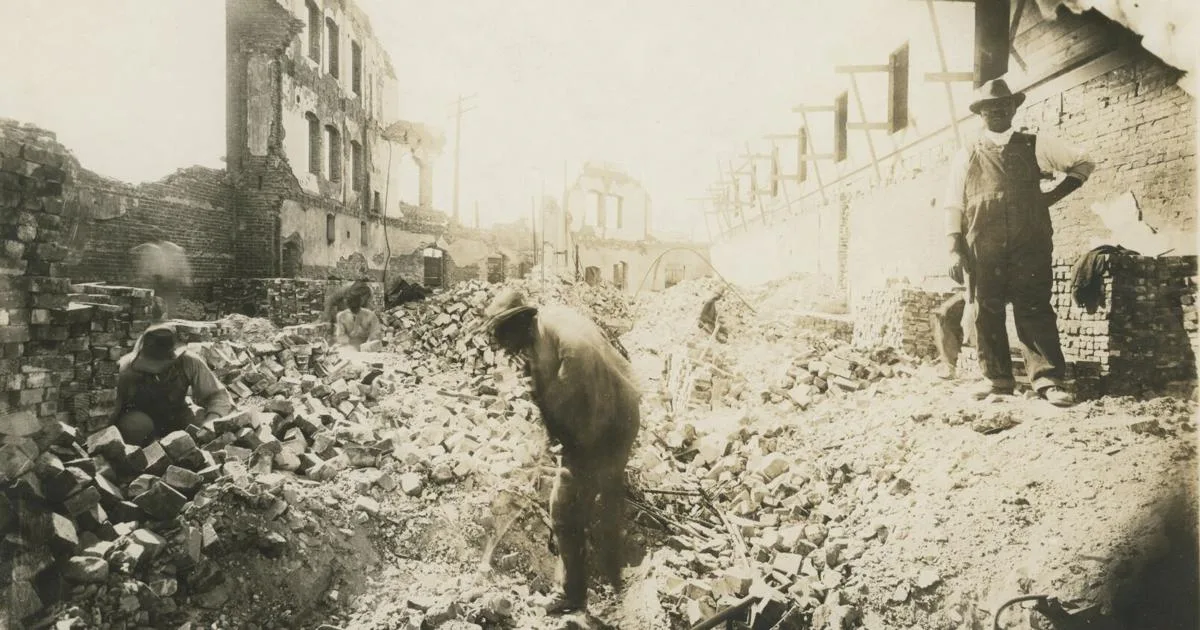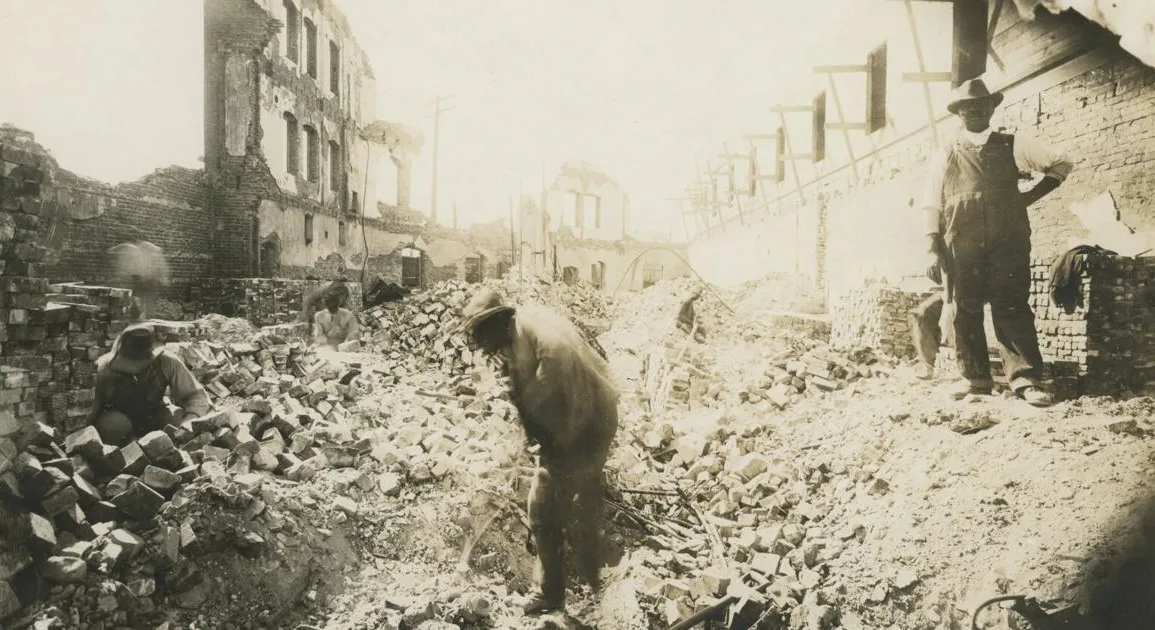
Not surprisingly, Tulsa’s nine-member City Council is not of one voice when it comes to creating a commission to establish and implement a reparations program for the 1921 Race Massacre.
As of last week, five of nine councilors were either noncommittal or unsupportive of the proposal.
The idea of a commission was offered in the form of a recommendation in the Beyond Apology Report, which summarizes the findings of a 2023 community-led effort to educate the public about what reparations for the Race Massacre could look like and gather Tulsans’ perspectives.
The document calls for the city to establish a “government sanctioned” commission or task force to create and implement a reparations program but does not specify who in City Hall would establish the commission.
People are also reading…
City Councilor Vanessa Hall-Harper, who represents the district in which the massacre occurred and is the city’s only Black councilor, supports creating the commission.
She said either the City Council or the mayor could recommend the commission be established.
“I think it’s important to speak to justice and inequality,” said Hall-Harper. “… We claim to be a country where everyone is created equal, and that justice belongs to everyone. But we have yet to prove that, I think, in the city of Tulsa or in this country, for that matter.”
Other councilors who favor the creation of the commission are Crista Patrick, Lori Decter Wright and Laura Bellis.
“I would be in support of a task force so that we may do a deeper dive into helping to heal the wrongs and to mitigate as best as possible any unintended consequences of our future actions,” Patrick said.
Wright said she sees creation of the commission as the natural next step in a process that began in June 2021, when councilors marked the centennial commemoration of the Race Massacre by approving a nonbinding resolution acknowledging and apologizing for the dark chapter in the city’s history and committing to make “tangible amends.”
The resolution also included a commitment to create a community-led initiative — known today as Beyond Apology — to explore what those amends might include.
Wright referenced remarks she made in June 2021 to explain her current thinking about the importance of the proposed commission.
“While we all recognize that moving forward with recompense will not right all the wrongs,” she said then, “it is undeniable that if we are sincere in our commitment to genuine reconciliation, reparations are the foundation upon which we must build a united Tulsa.”
Bellis said “substantive repair is core to achieving genuine reconciliation, justice, and economic well-being” for massacre survivors and descendants. She noted that it has been 103 years since the Race Massacre and more than 20 years since the state’s 1921 Tulsa Race Riot Commission found that “reparations are the right thing to do.”
She added that she would also like to see the commission examine the long-term economic effect of the massacre on specific zip codes and census tracts and consider repairs for those areas.
Longtime Councilor Jeannie Cue, who is running for District 2 county commissioner, said she needs to explore the issue further before making up her mind.
“I really haven’t had time to evaluate it,” Cue said. “I just don’t know enough. I am going to have to read it and read the study. It’s a big book.”
Also undecided is Councilor Christian Bengel, who was not on the City Council when it approved the 2021 nonbinding Race Massacre resolution. Bengel said he supports the work the city is doing to address inequities through the Mayor’s Office of Resilience and Equity, the Equality Indicators reports and other initiatives.
But when it comes to reparations, Bengel added, he doesn’t feel informed enough about the subject to make a decision on the recommended commission.
“Other than I don’t believe in the direct (financial) payment thing,” he said. “If you’re gonna go that path then it should go through the court systems.”
Councilor Phil Lakin said he needs time to read the report in detail.
“Given that the only thing I know about their work is what they presented in council committee,” Lakin said. “I also want to review their original proposal and compare it to the outcomes presented in the report.”
Councilor Grant Miller said he does not object to the city’s addressing economic harms it has caused as long as the redress is provided to all harmed, not just those of a particular race.
“To me, the color is green. We don’t need to make this about Black and white or any other race, the color is green,” Miller said. “And if people have been negatively economically impacted by past policies, we should remedy that.
“But we should never allocate resources along racial lines, nor should the city of Tulsa make a statement or create a commission for the purpose of racial division.”
Miller said that although he understands that the Race Massacre was perpetrated against the Black community in Tulsa, he does not believe what he sees as two wrongs making a right.
“We have a finite amount of resources in the city,” Miller said. “We don’t have an unlimited pot of money to go around. So necessarily … if one race receives money from a finite source, necessarily another group based on race will not receive that resource.”
Councilor Jayme Fowler, who is running for mayor, opposes creation of the commission.
“I do not support reparations,” Fowler said. “It is fundamentally wrong to require some Tulsans to pay a penalty for wrongdoings they did not commit.
“What I would support is an economic task force focused on free-market incentives that attract new investments and bring new jobs to economically depressed areas of Tulsa. To quote JFK, ‘A rising tide lifts all boats.’”
At the end of the day, it may not matter what councilors think of the proposed reparations commission.
Mayor G.T. Bynum — who does not support reparations in the form of direct cash payments — has already expressed support for creating such a commission.
“The challenge is the term reparations means different things to different people,” Bynum said earlier this month, adding: “‘I’m a big believer and always have been that there is no harm in bringing people together and talking through an issue.
“And I view that task force as a means for us to do that in a more in-depth way than I think we’ve been able to do as a community to date.”
Toward that end, Bynum is scheduled to meet with Hall-Harper and other Beyond Apology organizers in late March to discuss how to move forward on their recommendation.
The new Tulsa World app offers personalized features. Download it today.
Users can customize the app so you see the stories most important to you. You can also sign up for personalized notifications so you don’t miss any important news.
If you’re on your phone, download it here now: Apple Store or Google Play



